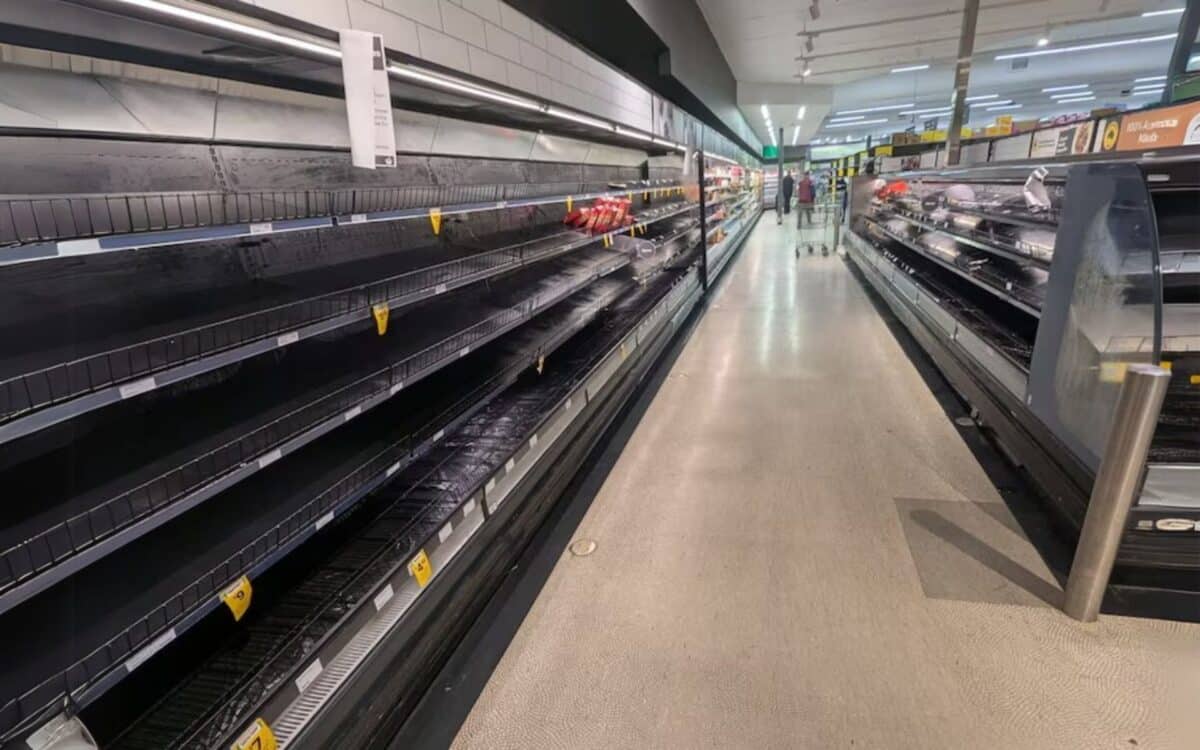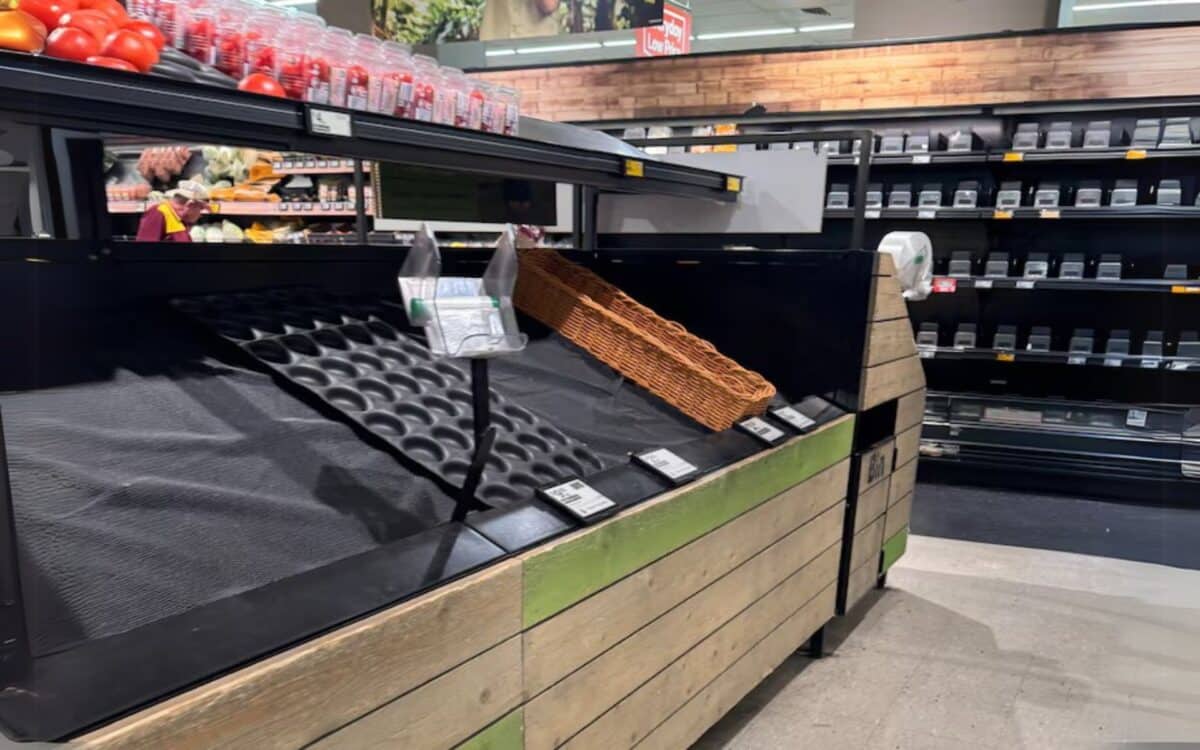Supermarkets across Queensland and northern New South Wales are struggling with supply shortages after Ex-Tropical Cyclone Alfred caused major disruptions in distribution networks.
The cyclone, which brought heavy rainfall and strong winds, not only affected the regions directly in its path but also triggered widespread panic buying, leading to shortages in essential goods.
According to ABC, logistical challenges, including transport delays and temporary warehouse closures, have further exacerbated the situation. As a result, empty shelves are being reported far beyond the immediate disaster zone, leaving many consumers frustrated.
Supermarket Chains Respond to Supply Challenges
Both Coles and Woolworths have reported difficulties in maintaining stock levels as they work to restock their stores following Cyclone Alfred.
Coles stated that it had increased order volumes in anticipation of the cyclone and implemented product limits to manage demand. However, its Brisbane distribution centre was forced to close on Friday and only reopened on Saturday, leading to delivery delays.
The closure of rail lines north of Brisbane has also affected supply chains, with deliveries now being redirected via road.

Similarly, Woolworths has mobilised hundreds of trucks to restore stock levels. However, supply chain disruptions have led to reduced availability of certain fresh products, including meat, bread, fruit, and vegetables.
The company is relying on its in-house bakeries to help address shortages in bread supply.
Woolworths state manager Danny Baldwin reassured customers that efforts were underway to restock as soon as possible:
With our suppliers also experiencing significant disruptions and closures during the peak of the weather, a number of fresh products including meat, bread, and fruit and vegetables may be in reduced supply in your local store over the coming days.
Our stores with in-house bakeries are baking as much bread fresh on-site as possible to boost availability for our customers.
While both supermarket chains have assured customers that they are working to resolve shortages, online shopping services are expected to take time to return to normal.
Woolworths has indicated that the first order windows for delivery or pick-up should be available towards the end of the week. Customers have been advised to expect potential substitutions in their online grocery orders.
Transport and Logistics Gradually Recovering
The Queensland Trucking Association has confirmed that freight distribution is gradually resuming, but some areas will continue to experience delays. CEO Gary Mahon stated that while some supermarkets in southeast Queensland remain temporarily inaccessible, major transport corridors remain open, allowing supply chains to resume operations.
Some people in the southeast will be affected temporarily, but distribution should return to normal soon – Mahon said
The good news is that freight movement into northern and central Queensland is starting to pick up.
Fresh Produce Supply Hit by Flood Damage
The cyclone Alfred’s effects have also been felt by fresh produce growers, particularly in Queensland’s Lockyer Valley, where heavy rain and flooding have impacted key agricultural areas. The region, which produces a significant portion of the country’s leafy greens such as lettuce, cabbage, broccoli, and cauliflower, suffered major losses.

Crowley Vale farmer Lorena Huggins reported that 82 hectares of cabbages and lucerne crops had been potentially wiped out. The financial impact is severe, particularly for growers still recovering from previous flood events.
We only just started recovering from the floods back in 2022, where we got hit twice that year, -Huggins said
There are quite a few of us who aren’t coping real well mentally around here
Michael Sippell, president of the Lockyer Valley Growers Association, described the situation as devastating.
“It’s heartbreak. I don’t know how else to describe it. We’re probably looking at at least two weeks before growers will get back on the ground again to plant, and that’s if the sun comes out.”
The aftermath of Cyclone Alfred has left farmers questioning how long it will take for full agricultural recovery, with many still facing major uncertainty.
Potential Effects on Consumer Prices
Although the immediate impact on supermarket prices is expected to be minimal, disruptions to planting schedules could lead to price increases in the coming months. Anthony Joseph, managing director of Brisbane-based wholesaler Alfred E Chave, explained that flooding may affect early winter crops, such as beans, corn, and lettuce.
“Things like beans and corn and lettuce and things — some of that may be affected,” – he said
[Growers] may not be able to work that ground and get a crop in now that would come in in 12 weeks.
Michael Sippell added that the real impact on prices might not be felt immediately :
The prices may affect consumers in two months’ time, three months’ time because the planting gaps will start.









